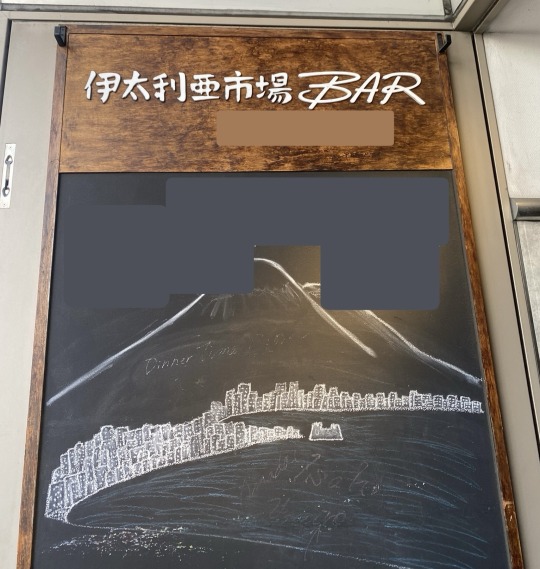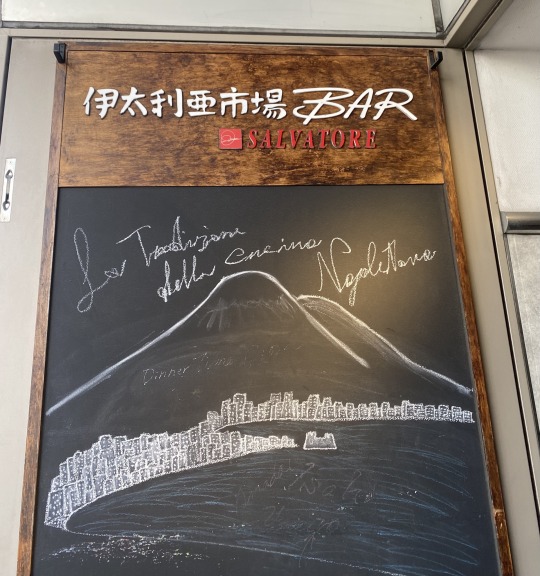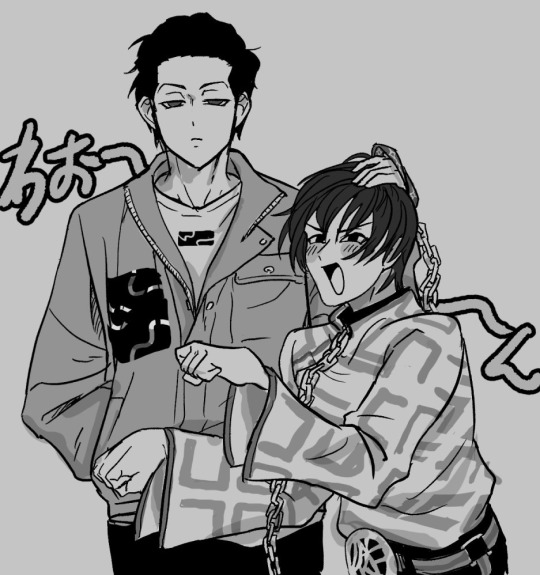#伊利
Text

🍓🎀🧁
#pokemon#pokémon#Sylveon#ニンフィア#700#Pachirisu#パチリス#417#Nymphali#Feelinara#님피아#仙子伊布#파치리스#帕奇利茲#MofuCoffee
4K notes
·
View notes
Text

『声優グランプリ』 カリスマ表紙・巻頭特集おめでとう!
特典のビジュも最高なんよ。。。!
3rdシーズンも待ってるからね🌟


#カリスマ#charisma house#テラ#terra#湊大瀬#minato ohse#天堂天彦#tendou amahiko#伊藤ふみや#ito fumiya#草薙理解#kusanagi rikai#本橋依央利#motohashi iori#猿川慧#sarukawa kei
25 notes
·
View notes
Photo


233 notes
·
View notes
Text
Look what I found in the wild—it's one of the ateji country names we covered a while back!

I’ve redacted the parts that might give it away. (Or at least I think I have—is this a very recognizable mountain range? Not my area of expertise.)
To be clear, the country name is only the first four characters: 伊太利亜. The last two, 市場 [いちば], mean market or marketplace.
So, can you read this? Click through to check!

伊太利亜 (or often just 伊太利) is read イタリア. Yes, it's Italy! And all four characters are common in ateji, so pay particular attention to the on-yomi!
伊 is read かれ or イ; it's actually the source of katakana イ. Its original meaning is “that one,” but today it’s used mostly in proper nouns or as an abbreviation for Italy.
太 is read ふと (ふと.い, ふと.る), タイ, or タ (which is its most common ateji reading). It means thick, fat, plump, wide, big around, etc. Don't confuse it with 犬 dog; mnemonic here!
利 is read き.く or リ; it's actually the source of katakana リ. It means profit, advantage, or benefit.
亜 is read つ.ぐ or ア. Its original meaning is rank next/come after, but today, it usually means Asia (亜細亜; usually アジア). However, it also shows up in all kinds of country ateji! The most common ones are 亜米利加 [アメリカ] America/USA (abbrev.: 米) and 露西亜 [ロシア] Russia (abbrev.: 露). It might also be worth remembering 亜鉛 [あえん] zinc.
14 notes
·
View notes
Text
Türkiye is extremely rich in vascular plants, and I really want to return there someday. My last trip there was full of beautiful memories; one of my favourites is this Kurdish boy took me to see the beautiful Iris iberica outside his village
20 notes
·
View notes
Text











#伊藤美来#高橋李依#富田美憂#島袋美由利#首藤志奈#石見舞菜香#中島由貴#佳原萌枝#中川梨花#Itou Miku#Takahashi Rie#Tomita Miyu#Shimabukuro Miyuri#Shutou Yukina#Iwami Manaka#Nakashima Yuki#Kahara Moe#Nakagawa Rika
11 notes
·
View notes
Photo

Xユーザーの壺さん: 「https://t.co/s540sb6H7l」 / X
19 notes
·
View notes
Text

🐶⛓
79 notes
·
View notes
Photo

伽羅ちゃん!!!quick ookurikara rkgk because im procrastinating on assignments
#touken ranbu#tourabu#ookurikara#dategumi#刀剣乱舞#とうらぶ#大俱利伽羅#伊達組#rkgk#illustration#digital art#i love kuri.. i love him a lot actually#also im confirming mitsutada put the hat on him
14 notes
·
View notes
Text

A cool name today, very uncommon but made of common kanji. 伊比 is read Ibi or Ihi. (Walking by, "Do you think it's ee-hee, like Michael Jackson?"—"I think probably yeah.") It's also cool because both characters originated a katakana character and are used to represent a country.
伊 is a character I'm surprised we haven't done in depth! It can be read kare or i, and it's the source of katakana イ i. Its original meaning was "that one," but being so simple to write made it perfect for ateji,* and it came to mean Italy (originally 伊太利, today イタリア), which is what it usually means today. You also see it often in Japanese surnames and place names.
比 is read kura.beru (比べる to compare) or hi. It's the source of katakana ヒ hi. It means compare, race, or ratio, and it's also used as ateji to refer to the Philippines (though its nowhere near as common as 伊 for Italy).
#kanji#japanese langblr#learning japanese#had to look up the full ateji for philippines: 比律賓#whew!#and w/r/t 伊太利#all three are pretty commonly used in ateji#and are safe guesses#if you ever are in the position to guess ateji for something
34 notes
·
View notes





























